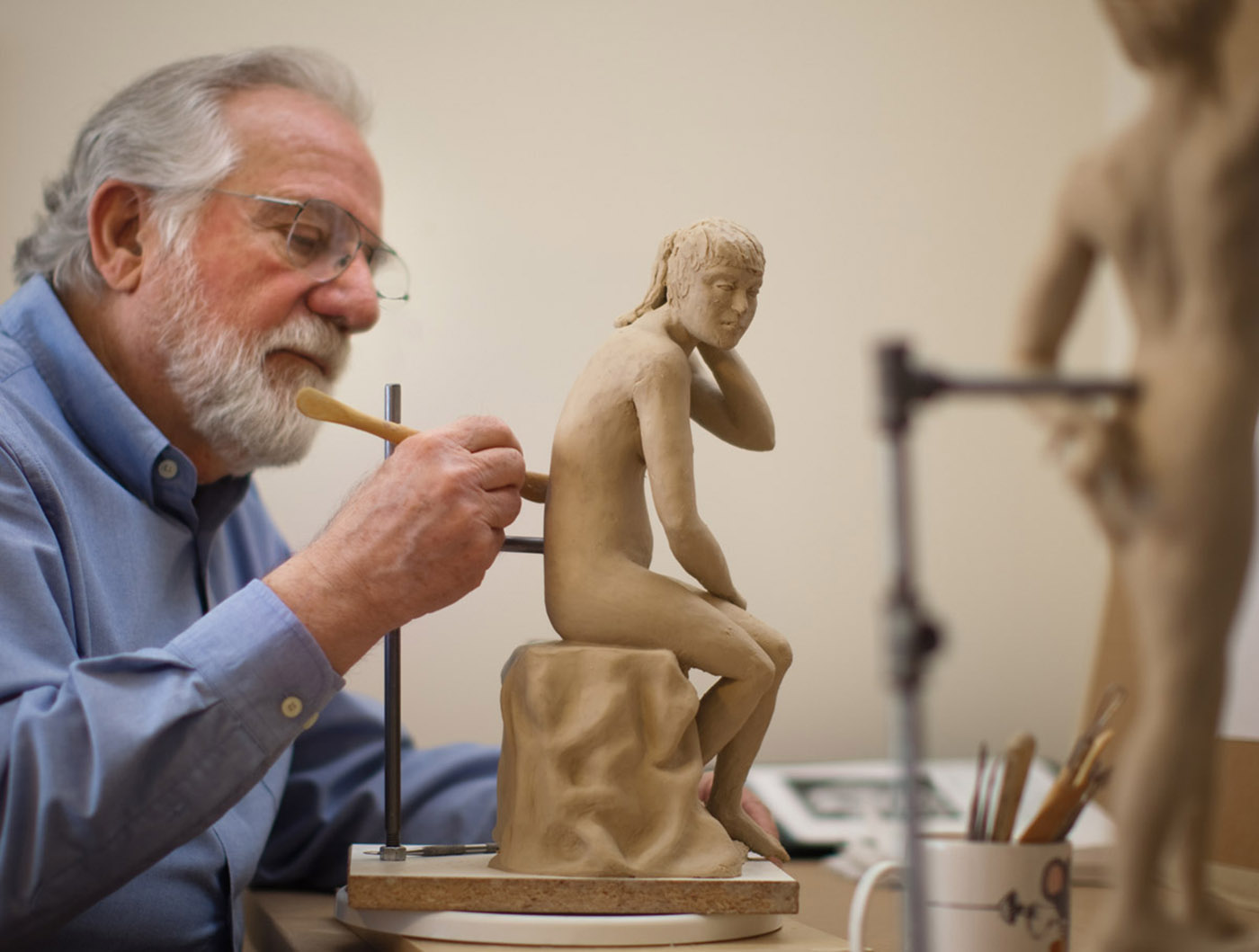

Life is a spiritual quality. Each individual is a spirit
who possesses a body and a mind. We refer to this essential side of Man as the
Being.
Life and each Being has four basic abilities....
TROM:
Be Known.
This is the creative postulate; the postulate that brings the effect into the existence. His PD postulate that goes with it at the other end of the comm line is ‘know’. This twin postulate structure is still present even if the effect is only being created for the benefit of the creator; in this case he merely responds to his own PD postulate and knows his own creation.
Time is the postulate "Continue to be known", and is the postulate that introduces persistence into the creation. In games play there are many methods of ensuring persistence, so that others are not easily able to vanish a creation. The most basic method is the lie, which calls the creation something which it is not. Thus, the perceiver only views the lie, and is unable to vanish the original postulate, which remains hidden. Therefore, this late in the game very few things are what they appear to be, and illusions are rampant.
There are no screens associated with this postulate, but there are plenty of them to be encountered from the opposition postulate, "Mustn’t know" (See later in this section.)
Also: Must be known. Outflowing. Extrovert.
Persuasive. Creative. Often prone to jealousy. Overts by infliction, and very
upset by rejection. He got into this leg by being overwhelmed by a Must Be
Known, whose valence he now occupies.


Bringing things into existence.
Life can bring things into existence. This is also called creating an
effect.
Life brings things into existence in order to make it known, in order to create
an effect.
This is the first ability of life. It manifests itself in hundreds of small
things we do every day. It also manifests itself in more noble undertakings,
such as creating art, write a book, make all kinds of plans and decisions and
then carrying them out.
To get a better grasp of this ability, the student should go through the
following execises. You can recall the following or you can make it up as
imaginary scenarios. You start with either
"Recall a time when...." or "Get the idea of..." ("Recall another time when..."
"Get another scenario of...")
You recall/imagnine the thing and then you are asked to "Get the emotion of the
scene," "Get the action or effort of the scene," and "Get any thoughts of the
scene." Each line can be used 3 or more times.
You made a drawing.
You decided to go somewhere and then went.
You talked to an employer about your qualifications and he hired you.
You wanted a job and then got it
You wanted to move to a new home and then carried it out.
You wanted to communicate something important and then did it.
You painted a wall or funiture.
You decided to write a letter or email about something important and then did
it.
You told someone that you liked him/her and you became friends
You asked someone to become your girlfriend/boyfriend and you succeeded.
etc. etc.
TROM:
Be Not-known.
This is the vanishing postulate; the postulate that takes the effect out of existence, His matching PD postulate at the other end of the comm line is "Not-know". However, due to the various persistency mechanisms it’s not easy these days to make a piece of the universe vanish for everyone. Consequently, the vanishing postulate has long since become the hiding postulate. The being, no longer able to make the effect vanish, has to be content with hiding it. There are many ways of doing this, the most common being to veil it with screens. The most impervious screens are black ones, and you will always find a lot of gooey blackness associated with this postulate.
In point of fact, the lie mechanism which is used by ‘Be known’ in games play to ensure the persistency of a creation by calling it something different from what it is, is really an attempt to mask the truth and is a part of ‘Be Not-known’, but I included it in the earlier section for convenience. ‘Be Not-known’ also uses the lie mechanism by further masking the truth so that the knower will not recognize the effect even when he finds it. It’s all very devious - and little wonder that people take up religion, and pray that the Almighty can maybe sort out the mess for them.
Also: Mustn’t be known. Restrained outflow. Retiring. Devious. Secretive. Obsessed by ‘privacy’. Tends to collect mass and wealth by the simple expedient of not being able to outflow it. Overts by deprivation, and very worried by the thought of their secret wheeler-dealings being revealed. He got into this leg by being overwhelmed by a Mustn’t know while being in the Must be known leg; he now dramatizes the Mustn’t be known PD postulate of his overwhelmer.


Taking things out of existenceMaking things not-known or not know something
"Recall a time when...." or "Get the idea of..." ("Recall
another time when..." "Get another scenario of...")
You recall/imagnine the thing and then you are asked to "Get the emotion of the
scene," "Get the action or effort of the scene," and "Get any thoughts of the
scene." Each line can be used 3 or more times.
You forgave someone for something they had done.
You decided that something was not important and forgot all about it.
You gave away something you didn't need anymore.
You decided not to return a phonecall to someone you didn't want to talk to.
Someone explained something important to them but you didn't pay any attention.
You changed interests in life and your old interest was all forgotten.
You forgot something important.
You had done something but claimed it wasn't your doing.
You told a lie.
You didn't say anything where you should have.
You had an argument with someone and decided not to see the person anymore.
You didn't read a book you were supposed to read.
You stayed away from class.
etc. etc.
TROM:
Know
This is the postulate that permits the being to know the effect. His matching PD postulate at the other end of the comm line is ‘Be Known’ - so the effect is there for him to know.
There are no screens or blackness associated with knowing, but as this postulate in games play is opposed by ‘Be Not-known’, you can expect to be feeling your way through a fair bit of murk from time to time in your pursuit of this postulate. Just work your way through it and understand what is going on, that’s all.
Also: Must know. Inflow. Nosey. Curious. Inclined to he highly sensual. Demands open comm lines. Hates secrets, and loves exposing them. Good solver of puzzles. Overts by revelation, and just hates being deprived of things. He got into this leg by being overwhelmed by a Must know, whose valence he now occupies.
all.

To Know is here considered an inflow. Someone else has
created an effect or made something known. The person is paying attention and
perceives the information or receives the creation and thus knows the effect
created. The student is the willing effect.
The keywords are interest, attention, willing effect.
"Recall a time when...." or "Get the idea of..." ("Recall
another time when..." "Get another scenario of...")
You recall/imagnine the thing and then you are asked to "Get the emotion of the
scene," "Get the action or effort of the scene," and "Get any thoughts of the
scene." Each line can be used 3 or more times.
You were paying attention in class.
Someone told you about their plans and you wanted to join.
Someone told you some good news and you were excited.
You read a book with great interest.
You KNEW your stuff at an examination.
You traveled and took all the new impressions in.
You met new people and liked them.
Someone instructed you in how to do something and you could do it.
Someone gave you a present and you were delighted.
You went to a restaurant and found the food delicious.
etc. etc.
TROM:
Not-Know
This is the ‘no-perceive’ postulate; it is the postulate the being uses to permit him to be unaware of an effect. His matching PD postulate at the other end of the comm line is ‘Be not-known’.
It’s necessary to clearly differentiate this postulate from ‘Be Not-known’. ‘Be Not-known’ is a vanishing or hiding postulate; ‘Not-know’ is merely a desire not to perceive the effect. An example of the use of the postulate is a spiritual being looking through a wall; he chooses to ‘Not-know’ the wall so he can perceive what is on the other side.
However, due to the persistency postulates of the universe the ‘Not-know’ postulate degenerates into an attempt to vanish the unwanted effect by force, then, failing that, to hide the effect from oneself behind a screen - usually of blackness. These screens are of an entirely different texture to the screens associated with the ‘Be Not-known’ postulate, being much harder and almost brittle. They are "impact resistant" screens designed for use against the most enthusiastic ‘Must Be Knowners’ he encounters in games play. When you strike these screens you will feel as though you are dealing with black Basalt. Sometimes, however, the screens of ‘Mustn’t know’ are quite transparent, and have the consistency of super-hardened quartz. All the screens associated with "Mustn’t know’ are hard, and clearly designed to resist any conceivable effect. People heavily dramatizing this postulate tend to develop a brittle hardness to their personality too. These people almost literally "crack" under intolerable stress.
Also: Mustn’t know. Restrained inflow. Rejection. Compulsively makes nothing out of things. Destructive. Overts by rejection, and dreads having anything inflicted upon him. Contrary to popular opinion he did not get this way by having things forced upon him. He got into this leg by being overwhelmed by a Mustn’t be known while being in the Must know leg; he now dramatizes the Mustn’t know PD postulate of his overwhelmer. He’s been overwhelmed by deprivation.
.

The Not-know is rejection in various forms. From ignoring, and making one self hard or unavailable to actively resisting inflow and destroying incoming messages and things.
"Recall a time when...." or "Get the idea of..." ("Recall
another time when..." "Get another scenario of...")
You recall/imagnine the thing and then you are asked to "Get the emotion of the
scene," "Get the action or effort of the scene," and "Get any thoughts of the
scene." Each line can be used 3 or more times.
You not paying attention in class.
Someone told you their plans and you rejected them.
Someone told you some good news and you refused to believe it.
You started to read a book but found it too silly and stopped.
You traveled on vacation but found it boring or waste of time.
Someone told you to do something but you made a mess out of it on purpose.
Someone wanted to give you a present but you refused it.
You met new people and found them strange.
You went to a restaurant but found the food inedible.
Someone tried to cheer you up but you got angry at them.
etc. etc.